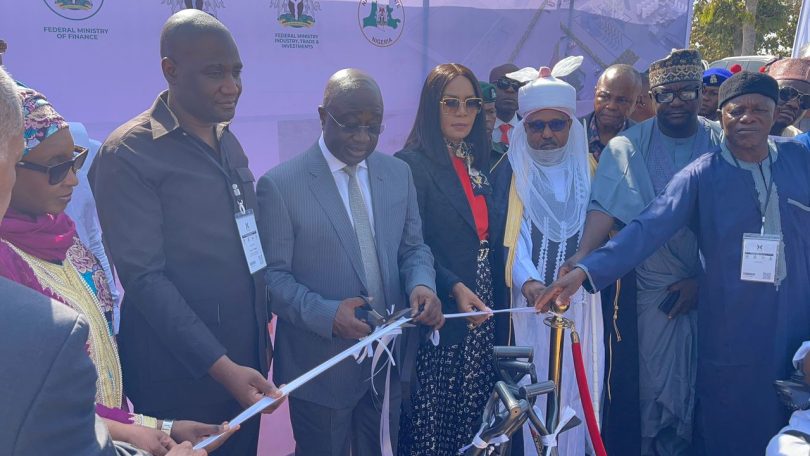By Chimezie Godfrey
Governor Abdullahi Sule has flagged off the construction of a $400 million Rare Earth Metal Processing Plant by Hasetins Commodity Ltd in Ukeh community, Karu Local Government Area, marking what officials describe as a historic leap for Nigeria’s solid minerals sector.
Speaking at the groundbreaking on Wednesday, Governor Sule represented by Deputy Governor Emmanuel Akabe, said the project signals the beginning of Nigeria’s entry into commercial rare earth processing, a field long dominated exclusively by China.
He commended Hasetins for investing in what he called “a game-changing industrial project” that will process minerals such as Latino uranium, chromium and other strategic metals abundant in the state.
“For the first time in Nigeria, we are going to have a rare metal processing plant. This investment is huge, historic and something our people should be proud of,” Sule said.
Rare earth metals—17 critical elements including Lanthanum, Cerium, Neodymium, and Dysprosium—are essential for modern technologies such as electronics, clean energy systems, electric vehicles, and medical devices. Their unique magnetic and catalytic properties make them some of the world’s most sought-after industrial inputs.
Experts say the commercial discovery and local processing of rare earths in Nigeria could significantly reshape global supply chains and expand the country’s strategic economic relevance.
Minister of Solid Minerals Development, Dr. Dele Alake, described the project as a direct outcome of President Bola Ahmed Tinubu’s push for mineral-driven industrialisation.
He said the plant represented “a patriotic revolution” that will reposition Nigeria for self-reliance, prosperity and global competitiveness.
“Hasetins Group shall demonstrate that we can separate, process and refine our rare earth metals. Under President Bola Tinubu, the Renewed Hope agenda is giving birth to a new era of economic prosperity,” Alake stated, expressing optimism that the refinery would soon be commissioned.
Minister of State for Labour and Employment, Ms Nkiruka Onyejeocha, said the facility offered a major opportunity to tackle the country’s unemployment challenge, noting that Nigeria must create at least 4.5 million jobs annually to maintain current employment levels.
“Mining remains one of the few sectors capable of generating jobs across all skills levels—from professionals to artisans. Initiatives like this are therefore strategic,” she said, adding that the ministry would support the project to ensure international occupational safety standards are upheld.
Managing Director of Hasetins Commodity Ltd, Prince Jidayi, said the company is committed to sustainable operations and a diverse workforce.
He noted that rare earth minerals are indispensable to advanced global technologies—from renewable energy and electric vehicles to defense systems and consumer electronics.
“This plant represents a bold step into a future rich with innovation and sustainability. We are committed to protecting the environment even as we advance technologically,” he said.
The groundbreaking ceremony marks one of Nigeria’s most significant solid minerals investments in recent years, positioning Nasarawa State as a new hub for critical minerals processing in West Africa.

